The second new production of the Rossini Opera Festival was l’Italiana in Algeri, one of the Pesaro composer’s most performed works and a masterpiece of the genre “opera buffa. Composed by Rossini when he was just 21, and likely inspired by a true event—the kidnapping of a Milanese lady by pirates in 1805—the opera is centred on the character of Isabella: a charismatic and captivating protagonist, with her feminine charm and determination, who asserts herself and outsmarts the Bey of Algiers and all the men who surround and lust after her.
Rossini’s music fits perfectly into this theatrical mechanism, with melodic inventions and prodigious musical wonders that have no equal in the history of melodrama, culminating in the celebrated finale of the first act, in which the text breaks down “ding din cra cra bum bum” to leave room for what Stendhal called “une folie organisée et complète”. Pesaro hasn’t seen this opera since 2013, when it premiered at the Rossini Theater, directed by Davide Livermore in a psychedelic and colorful mix of Hollywood, cartoons, and comics. For 2025, the Festival has turned to Pesaro-born director Rosetta Cucchi, who describes “Rossini’s quintessential comic opera as a space for disguise, role reversal, and freedom from imposed codes.” Isabella becomes a drag queen, and the opera begins before the curtain rises with a tribute to the cult movie “Priscilla Queen of the desert” and the arrival in front of the theater of a colourful van carrying a group of drag queens who are arrested by the police of the Bey of Algiers. The show works well from the start, also taking into account that Pesaro’s habitués include the queerest audience of all summer festivals.
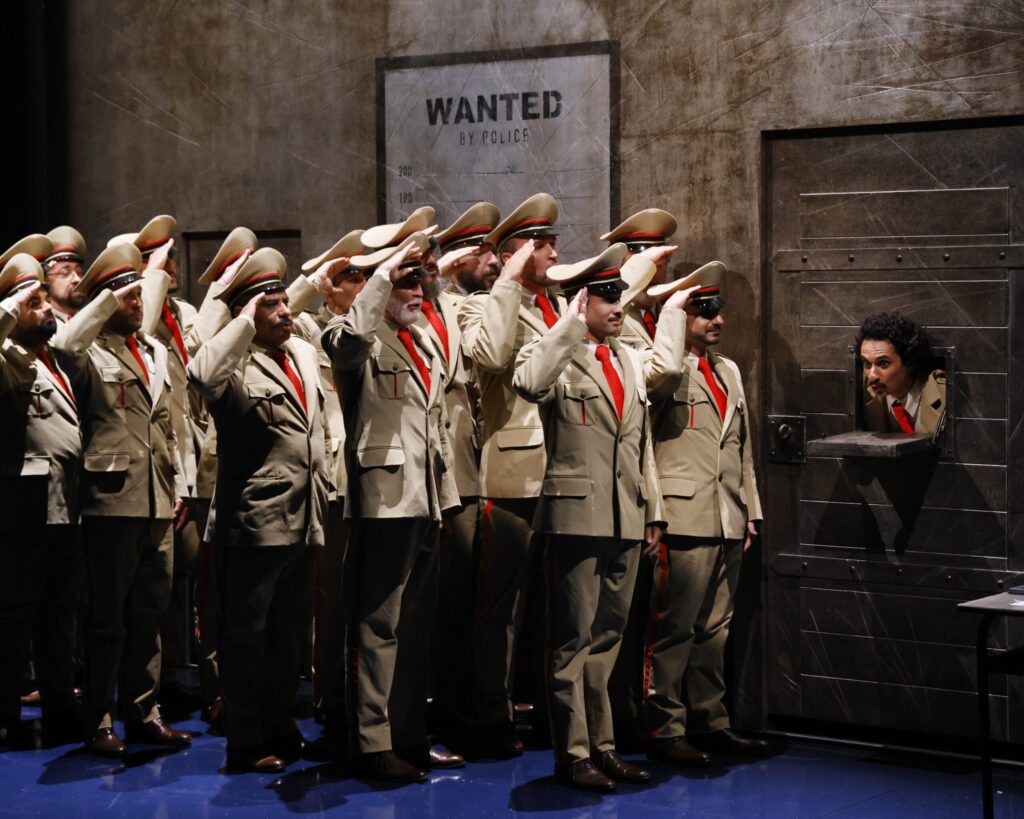
The show, which coherently develops the LGBT theme throughout the opera’s two long acts, is built around Daniela Barcellona‘s presence in the role of Isabella. Cucchi skilfully exploits her physical and vocal qualities to create an intelligent and engaging performance that rarely transcends the spirit of Rossini’s libretto and music. Despite some banal and dejà-vu gags—Mustafa playing Risiko, Isabella playing with foam in the bathtub—the show gracefully maintains Rossini’s irony and nonsense. The comedy’s characters are portrayed in a caricatured manner, yet with depth and psychological subtlety, alternating comical and surreal moments with civil rights themes. The rendition of Isabella’s aria “Pensa alla Patria“, sung against the backdrop of original footage of LGBTQIA+ rights demonstrations, is particularly impactful.
Daniela Barcellona, who made her Pesaro debut in 1999 at the Rossini Opera Festival, has been one of the leading interpreters of en-travesti roles in the composer “opera seria” for many years, such as Tancredi, Malcolm, Arsace, and Falliero. She boasts a full, rich, harmonious mezzo-soprano voice, and a commanding stage presence, standing over six feet tall. It all seems mad on purpose to honor the first interpreter of the role, the prima donna Marietta Marcolini, a contralto with a Junoesque figure, much loved by Rossini. From her opening cavatina, “cruda sorte, amor tiranno” Barcellona reaffirms her status as a singer of supreme class and a true diva of the Rossini repertoire. Her vocal power is combined with the allure of her contralto timbre, which rises easily to the high notes and displays all the agility of the part with ease. From her entrance onstage, in the prison where the police are identifying drag queens, Isabella portrays a strong-willed and seductive character, perfectly at ease in the flashy and excessive outfits designed for her by Claudia Pernigotti. Even in the moment of seduction, “per lui che adoro,” Barcellona makes the most of her vocal color and personality in an ambiguous game aimed at making all the men who court her jealous. The virtuosic and patriotic moment of the great aria “Pensa alla patria” and the rondò that follows are approached and resolved with great confidence and mastery of the coloratura, arousing the enthusiasm of the audience and the greatest applause of the evening.
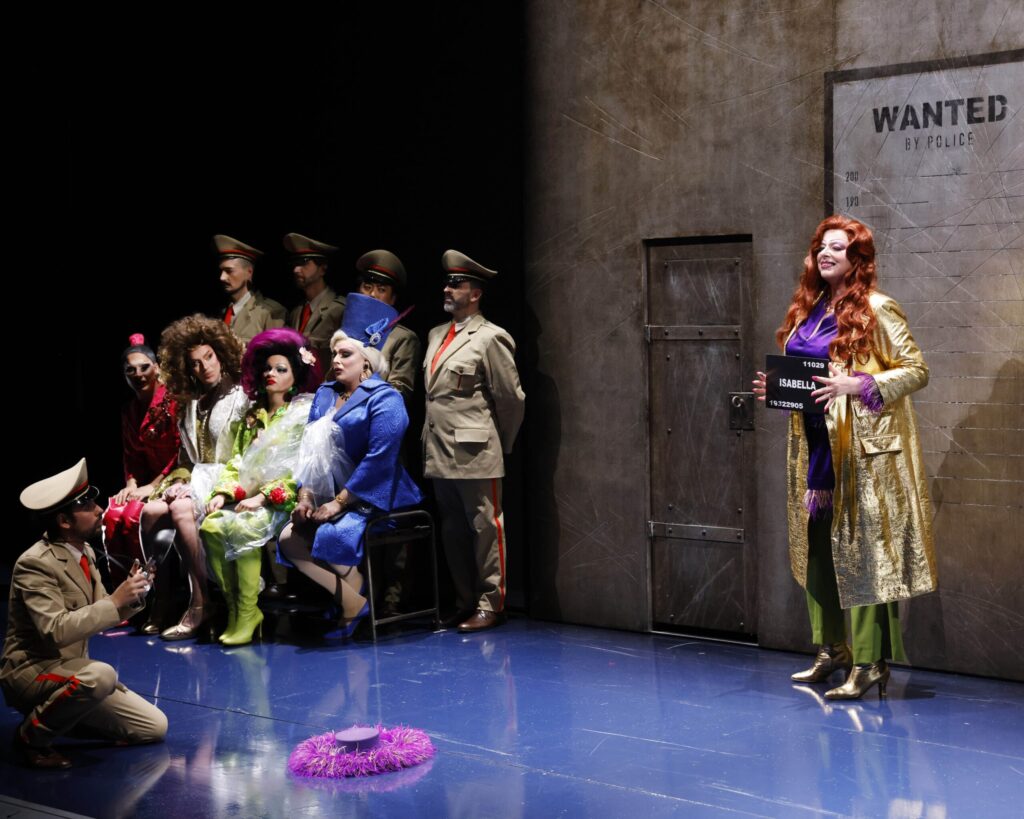
Bass Giorgi Manoshvili is a superb Mustafà; his voice is remarkable for its color and homogeneity of sound, and the Georgian singer has all the makings of a leading Rossinian noble bass, mastering coloratura and style without difficulty, following in the footsteps of the last great interpreter of the Bey, Russian bass Ildar Abdrazakov. Manoshvili masters the extremely difficult aria “già d’insolito ardore nel petto,” written by Rossini for the great vocal talents of Filippo Galli, with bravado and confidence. Manoshvili’s ease in resolving the terrifying high Gs of the Pappataci is admirable, ironically rendered on stage during the painful epilation of his hairy chest. From a stage perspective, Manoshvili is also overwhelming in his comical wit and stage presence, in his transformation from macho man to drag performer in high-heeled red boots.
Tenor Josh Lovell, as Lindoro, displays a clear and pleasant timbre well suited to the part, but unfortunately the singer lacks the technical expertise for the role, struggling with the high notes and coloratura, particularly in the opening aria “Languir per una bella,” which he completed with clear difficulty in the final section “contenta quest’alma.”
Misha Kiria, as Taddeo, displays a powerful voice and personality, with a truly buffo-like diction, perfect stagecraft, and commanding volume—even too much so, risking sounding more suited to Falstaff than Isabella’s foolish “zio.” Dmitry Korchak, fresh from great triumphs as a Rossini tenor—his Arnold at La Scala was phenomenal—tests himself as conductor of the “Orchestra del Teatro Comunale di Bologna”. The performance is almost always correct, the balance with the stage is good, and the Rossini crescendos are all there, but the whirlwind of exhilaration and madness that characterizes this wonderful score is missing, and the instrumental solos are not
always precise. The theater was completely full in every space with Rossini enthusiasts and dedicated fans, who applauded enthusiastically along with the performance, paying a great tribute of affection and admiration to the beloved Daniela Barcellona.
CAST
Mustafà– Giorgi Manoshvili
Elvira: Vittoriana De Amicis
Zulma : Andrea Niño
Haly: Gurgen Baveyan
Lindoro: Josh Lovell
Isabella: Daniela Barcellona
Taddeo Misha Kiria
Conductor: Dmitry Korchak
Director: Rosetta Cucchi
Settings: Tiziano Santi
Costumes: Claudio Pernigotti
Lighting designer: Daniele Naldi
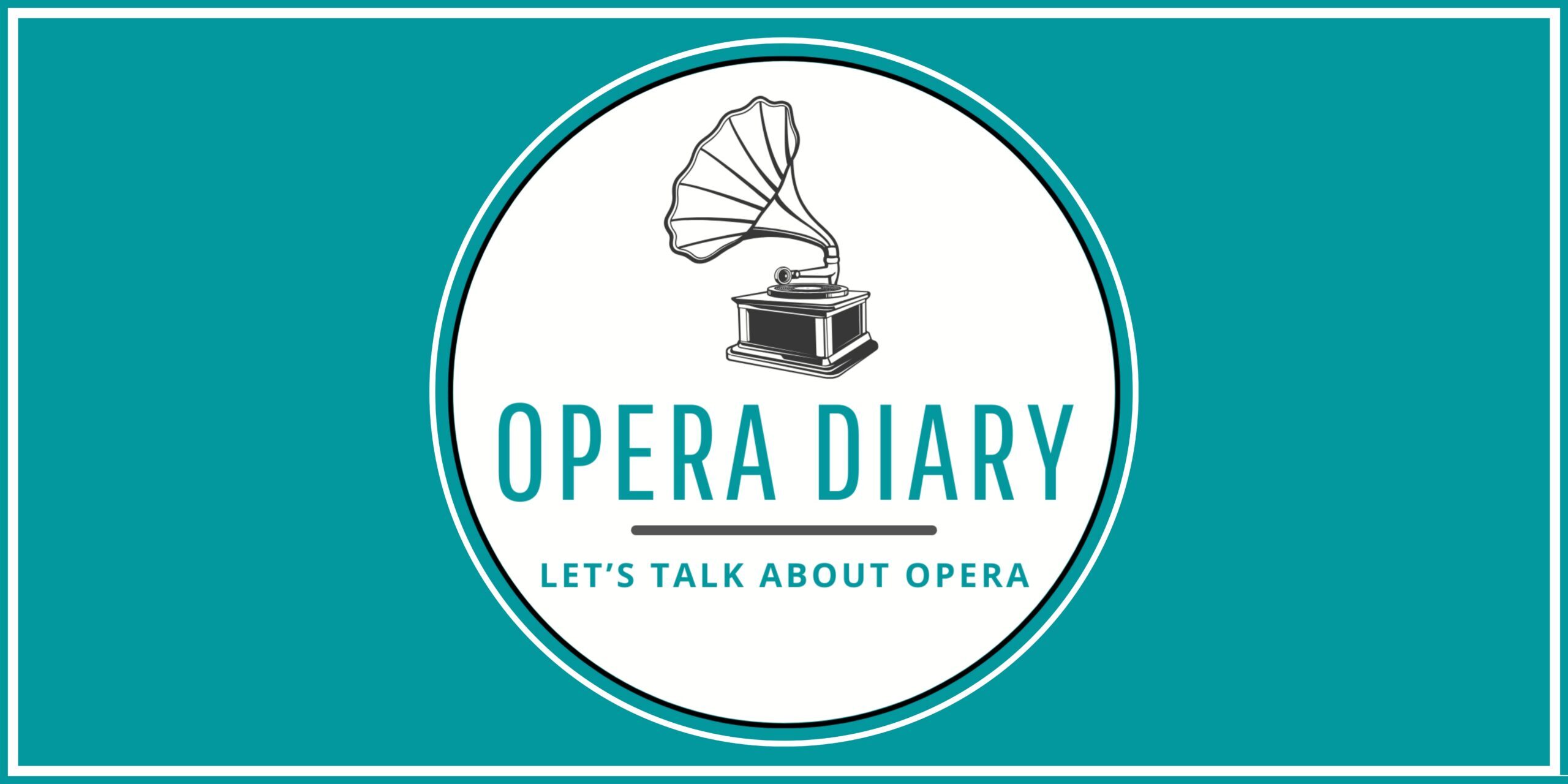
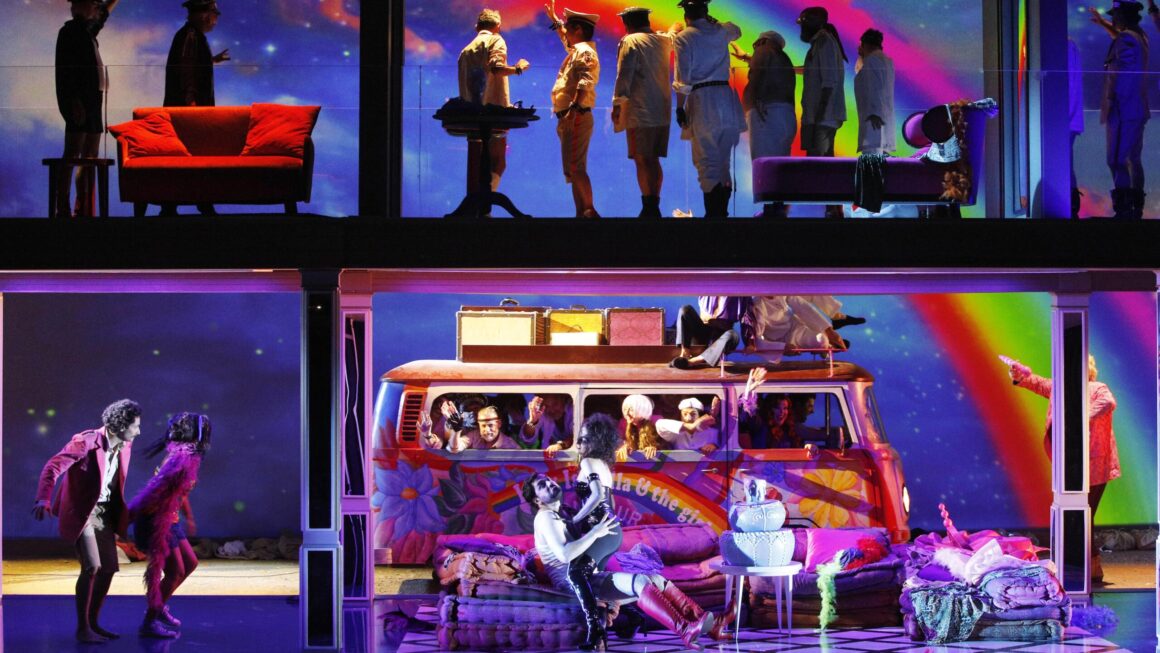
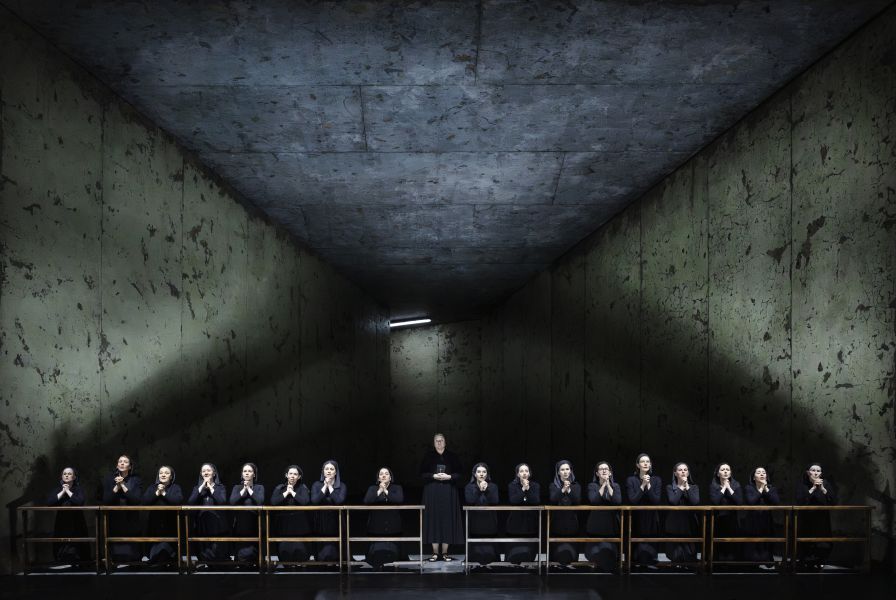
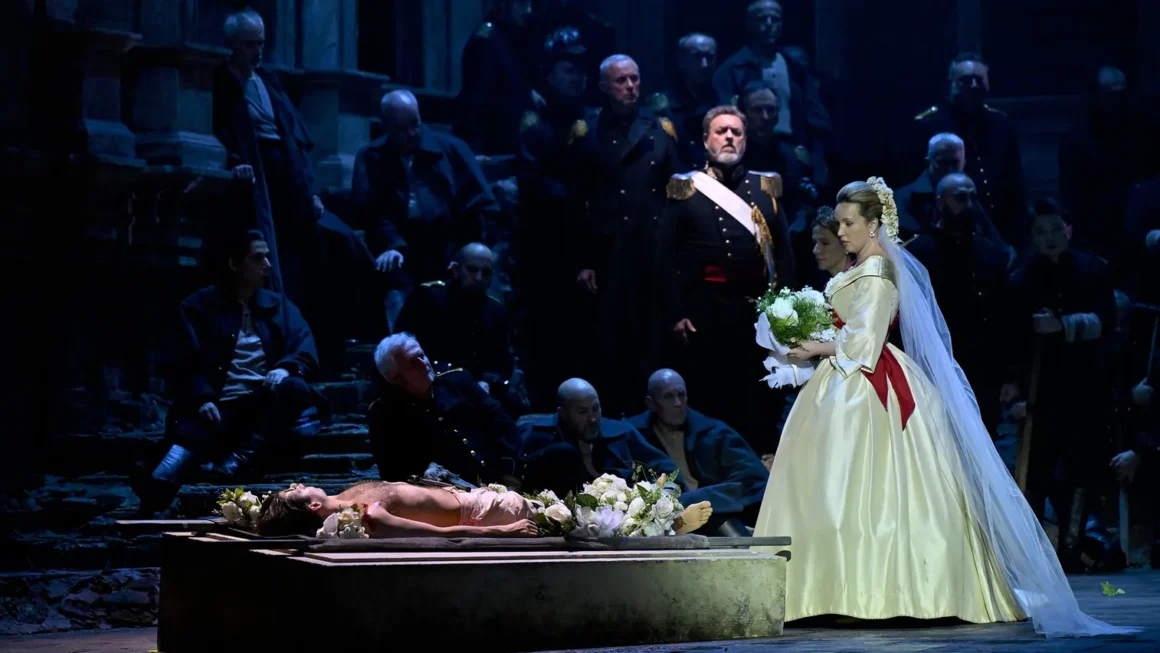
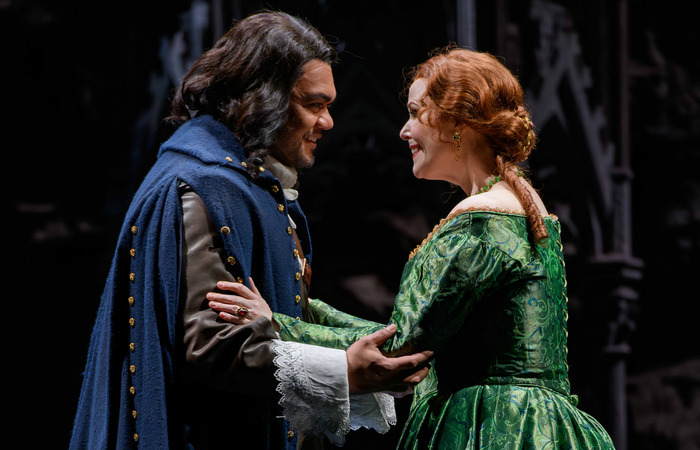
“Tempting tease longs for ecstasy.” Here — https://rb.gy/8rrwju?Waina
“Alluring tease craves intoxicating bliss.” Here — rb.gy/3fy54w?rof